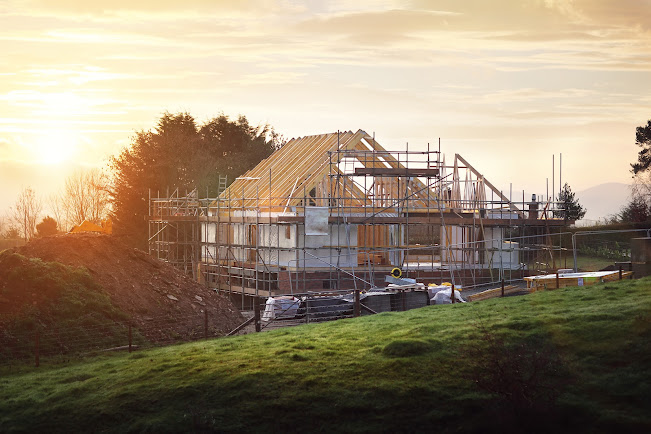The Benefits of Long-Term vs. Short-Term Property Development Projects
Property development is a dynamic field that offers various investment opportunities. Whether you're considering long-term or short-term projects, each approach has its unique benefits and challenges. Understanding these can help you make informed decisions and optimise your investment strategy. This article explores the benefits of both long-term and short-term property development projects in the UK, providing valuable insights for investors.
Long-Term Property Development ProjectsLong-term property development projects typically
span several years, focusing on substantial developments such as residential
communities, commercial complexes, or mixed-use properties. These projects
require significant capital and time but offer numerous benefits.
1. Stable Income Stream
One of the primary advantages of long-term
property development is the potential for a stable income stream. Once the
development is completed and leased out, it can generate consistent rental
income. This is particularly attractive for investors looking for steady cash
flow over an extended period.
2. Capital Appreciation
Long-term projects often benefit from capital
appreciation. As the property market grows and develops, the value of the
property is likely to increase. This appreciation can result in significant
returns when the property is eventually sold.
3. Economies of Scale
Large-scale developments often benefit from
economies of scale. By spreading costs over a larger project, developers can
reduce per-unit costs, improving overall profitability. This can include
savings on materials, labour, and other expenses associated with the
development.
4. Enhanced Community Impact
Long-term projects can have a profound impact on
the surrounding community. They often involve comprehensive planning and
infrastructure development, contributing to local economic growth and improving
quality of life. This can enhance the project's reputation and attract
high-quality tenants or buyers.
5. Potential for Higher
Returns
While long-term projects require a significant
initial investment, they often yield higher returns in the long run. The
combination of rental income and capital appreciation can result in substantial
profits, making these projects appealing for investors with a long-term
perspective.
6. Tax Benefits
In the UK, long-term property investments can
offer tax advantages. Capital gains tax rates are often lower for properties
held for longer periods, and investors may benefit from various reliefs and
allowances. This can enhance the overall return on investment.
Short-Term
Property Development Projects
Short-term property development projects,
commonly known as "flipping," involve purchasing properties, making
improvements, and selling them within a short period, typically within 12 to 24
months. These projects are fast-paced and offer distinct benefits.
1. Quick Returns
The most significant advantage of short-term
projects is the potential for quick returns. Investors can realise profits
within a relatively short period, allowing them to reinvest in new
opportunities. This can be particularly attractive in a rapidly appreciating
market.
2. Flexibility
Short-term projects offer greater flexibility
compared to long-term developments. Investors can quickly adapt to market
conditions, taking advantage of favourable trends and minimising exposure to
downturns. This agility can be a significant advantage in a volatile property
market.
3. Lower Risk Exposure
By completing projects quickly, investors reduce
their exposure to long-term risks such as market fluctuations, regulatory
changes, or economic downturns. This can result in a more predictable
investment outcome.
4. Increased Cash Flow
Successful short-term projects can generate substantial
cash flow, allowing investors to build capital quickly. This increased
liquidity can be used to diversify investments, reduce debt, or fund future
projects.
5. Market Responsiveness
Short-term projects enable investors to respond
swiftly to market demands. For example, if there is a sudden increase in demand
for certain property types, developers can capitalise on this trend by quickly
renovating and selling properties that meet these needs.
6. Opportunity for Portfolio
Diversification
Short-term investments can complement long-term
holdings, providing a balanced portfolio. By combining both strategies,
investors can achieve a mix of immediate profits and long-term growth,
spreading risk and optimising returns.
Comparing
Long-Term and Short-Term Projects
Both long-term and short-term property
development projects have their unique benefits. The choice between them
depends on various factors, including the investor's financial goals, risk
tolerance, and market conditions.
Financial Goals
●
Long-Term Projects: Ideal for
investors seeking stable income and capital appreciation over an extended
period.
●
Short-Term
Projects: Suitable for those looking for quick profits and increased cash flow.
Risk Tolerance
●
Long-Term
Projects: Involve higher initial investment and longer exposure to market risks
but offer potential for higher returns and capital appreciation.
●
Short-Term
Projects: Offer quicker returns and lower long-term risk exposure but may
involve higher operational risks and market volatility.
Market Conditions
●
Long-Term
Projects: Beneficial in stable or appreciating markets where property values
are expected to rise steadily.
●
Short-Term
Projects: Advantageous in rapidly changing markets where quick adaptations can
yield significant profits.
Investment Strategy
●
Long-Term
Projects: Align with a conservative investment strategy focused on steady
growth and income.
●
Short-Term
Projects: Fit an aggressive investment strategy aimed at maximising quick
returns and capitalising on market opportunities.
Conclusion
Both long-term and short-term property
development projects offer unique benefits, making them valuable components of
a diversified investment portfolio. Long-term projects provide stable income,
capital appreciation, and a significant community impact, while short-term
projects offer quick returns, flexibility, and increased cash flow.




Comments
Post a Comment